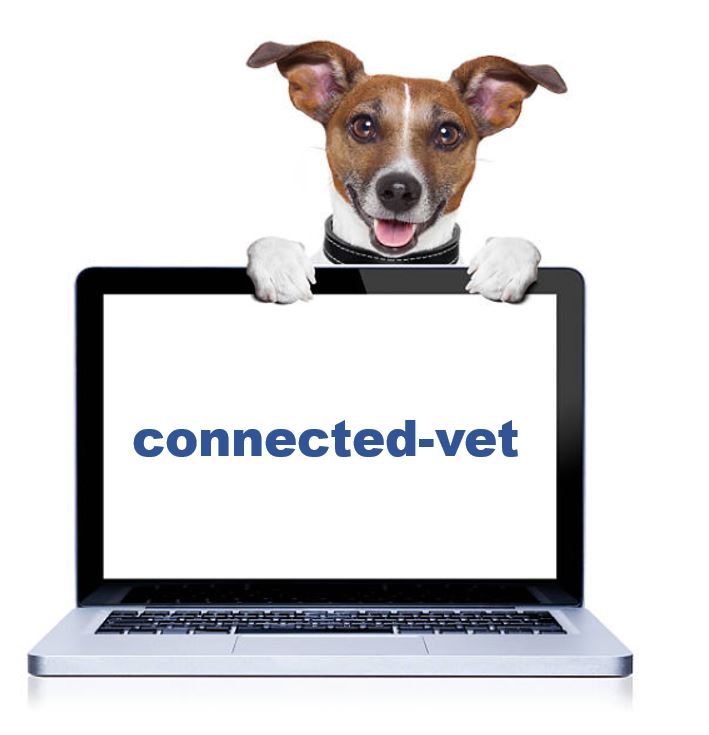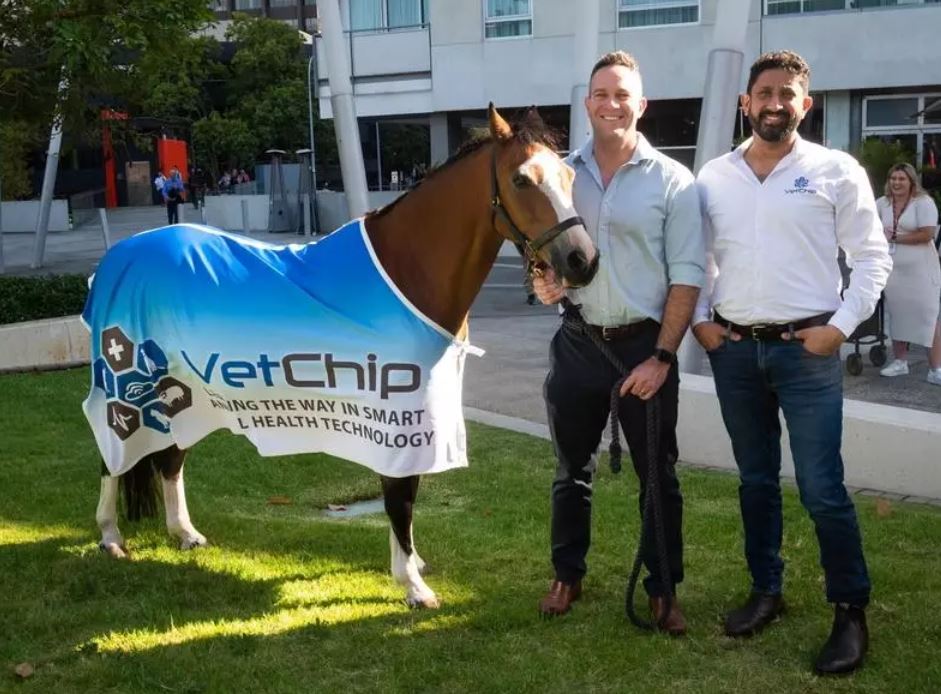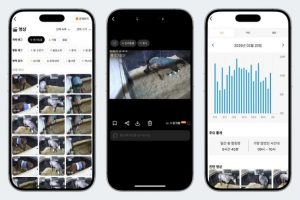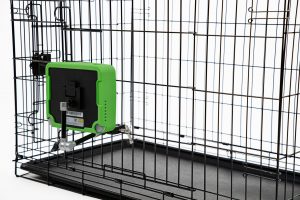A « fitbit for animals » that monitors their temperature, pulse and respiratory rate could help prevent livestock from dying in transit.
Microchip technology that feeds the animal’s biological data into a phone app, was shown off at a major agritech food conference in Perth last week, complete with ‘Teddy’ the horse who has been chipped.
The WA-based company behind the tech, VetChip, has teamed up with Charles Sturt University and confirmed it will begin trials on sick horses this year.
The chip, which is a similar procedure for when an animal is identity microchipped, is inserted under the animal’s skin and monitors for heart rate and can also check for heat stress.
« It gives you a source of truth about the welfare state of the animals, » the vet behind the tech Garnett Hall said.
The tech is believed to be world first, and while other wearable animal fitbit technology exists, none are in chip form.
Horses, pigs, sheep, dogs and cats have all been tested with the chip.
Hariett Mellish from Agrifutures, which puts on the evokeAg conference, said the technology was initially developed for pets.
« The opportunity is boundless, with potential to be scaled across agriculture including for sheep, cattle and pigs, » she told AAP.
Dr Hall said the chips are especially relevant for the live sheep export trade, worth around $85 million which the Albanese government has vowed to stop, leaving exporters angry.
« If we can monitor their health and show that they are appropriately cared for through the journey, then you can demonstrate that it’s (live sheep exports) an appropriate activity to continue, » Dr Hall said.
« You could see in real time whether those animals were getting stressed, whether they were getting too hot, whether they were in a positive welfare state at every point throughout the journey. »
He said while it would be « cost prohibitive » to chip all the animals on board, a sample could provide enough information.
John Hassell from WA Farmers, who are furious about the proposed live sheep export ban, said he would like to see the technology trialled on live export ships.
« It gives real time monitoring and if added to a video feed it would give absolute assurance of the conditions in which the sheep are being held, » Mr Hassell said.
Dr Hall, who was until recently president of the Australian Veterinary Association in WA, said the chips could be particularly relevant for high value animals like stud horses and cattle, and could help with Australia’s national vet shortage.
« It lets vets be better vets, gives them time back, and they can monitor a whole heap of animals remotely, » Dr Hall said.
Charles Sturt University will now help carry out equine research trials as well as tests on other species.
Australian Associated Press






